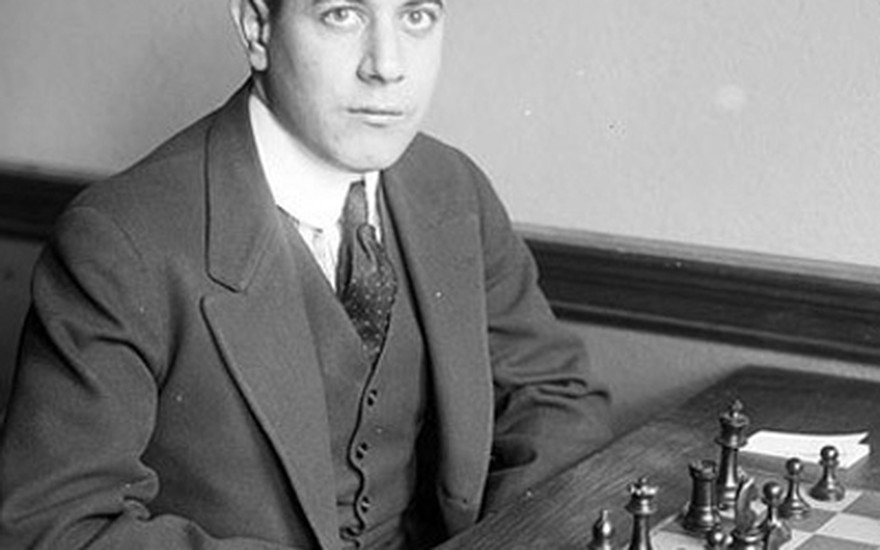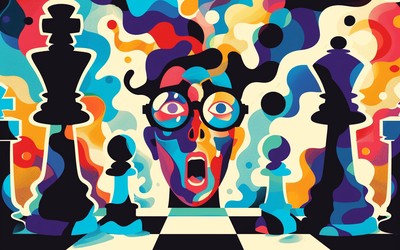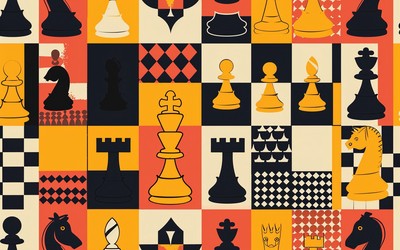
What's The Point Of Studying The Endgame?
And, does blitz help you improve?John asks:
There seems to be some disagreement about how much class players should study endgames. Oversimplifying, a few schools of thought seem to be:
(1) Most classic endgames (eg R+B v R) occur infrequently in practice, and adults with limited time to study chess should focus on other things;
(2) Learning classic endgames gives you ineffable insight into the coordination of the pieces (eg B+N mate) that can improve your chess in other ways;
(3) What’s important is to study endgame skills, rather than memorize classic endgames (eg study Shereshevsky’s Endgame Strategy);
(4) Strong endgame knowledge can frequently save you at least a half point, particularly if it allows you to find good simplifications in the middlegame, so it’s worth studying classic endgames because they often appear in high leverage situations;
(5) There are a few common endgames that are worth knowing (eg Philidor), but it’s not worth focusing on less common endgames.
What do you think?
I find the discourse around the endgame to be kind of whacky, even by chess standards. The standard cliche seems to be that endgames are boring, but good for you. I don’t think endgames are boring, but I also haven’t seen any clear evidence that studying them is better for your overall results than studying any other part of chess.
Your points 1-3 get at the difference between theoretical and practical endgames. Theoretical endgames are those with few enough pieces on the board that the game can be reduced to a known solution or method that can be learned and executed; practical endgames have more pieces on the board and don’t have a cut and dried solution. They must be played, much in the same way you’d play a middlegame, with plans, tactics, and so on.
Generally I’d say theoretical endgames are a bit overrated, and practical endgames a bit underrated. This fits with the overall trend of many players preferring to study discrete, defined topics, where it’s clear if you know them or not (theoretical endgames, opening variations), as opposed to fuzzier parts of the game, where it’s harder to measure progress, but which ultimately may be more central to your skill as a player (tactical alertness, time management, etc.).
If you try to do an expected value calculation of how many points you’ll gain by learning a particular theoretical endgame, it will probably come out looking like a waste of time, because you’re just not going to get any specific endgame that often as a percentage of all the games you play. The most common ones do come up fairly often: K+Q vs. K, K+R vs. K, K+P vs. K, and maybe some more advanced ones like the Philidor position. But if you go much beyond that, you’re getting into some stuff that you might only see once in your lifetime, if that.
Confession time: I do not know a lot of the endgames in 100 Endgames You Must Know. There are even some pretty basic ones like K+Q vs. K+R that I’ve never learned. But I honestly can’t recall a single game where failing to know one of those endgames cost me even half a point. There could easily be some games I’m forgetting, but it can’t be very many. I’m not trying to knock 100 Endgames You Must Know, which by all accounts is an excellent book, I’m just saying that if you take the title literally, there’s no sense in which you “must” know all these endgames. You can definitely get to grandmaster level without knowing all of them. Having said that, it’s also a perfectly reasonable thing to study. It won’t take that long to learn, and once you know it, you don’t need to devote much time to management to stay on top of it.
Another reason to study theoretical endgames, which I rarely see mentioned, but might be the best reason, is it’s a way to get tangible wins. As you’ve probably noticed, it’s hard to make meaningful improvements to your overall skill as a chess player. You often experience long plateaus or setbacks before seeing your rating increase. This can lead to burnout, discouragement, or even quitting chess altogether. For that reason, there’s value in getting small wins, even if they may be somewhat contrived. Something like learning to mate with bishop and knight might not happen very often on the board, but you can learn to do it in a relatively short amount of time. That visible progress can boost your confidence.
As far as learning endgames giving you “ineffable insight into the coordination of the pieces”... I actually think there’s something to this?! When I was studying Domination in 2545 Endgame Studies I did have the feeling that I was gaining a deeper feeling for the powers of each piece. Of course, it’s hard to measure this in any quantitative way. Maybe a more mundane way of getting at a similar idea would be to say that the endgame offers a simplified arena to practice the game. In particular if you’re still relatively new to chess, middlegames with all the pieces on the board may seem like an impenetrable jungle. It’s common sense that when learning something new it makes sense to start with a simplified version. With fewer pieces on the board, endgames can be seen as a simplified version of chess, where you’re more likely to be able to answer your own questions in a way that makes sense to you.
There is also something to the idea that endgames are “high leverage situations.” I think of endgames as “winning time,” as basketball coaches call the last few minutes of the game. I recall a Fabiano Caruana where he said he takes endgame decisions especially seriously, because if you make a mistake, there is no time left to right the ship. If you go into a losing endgame, you probably won’t be able to play your way out of it. For those reasons, the impact of decisions in the endgame is magnified.
So where does that leave us? There are some good reasons to study endgames, the best in my opinion being to practice in a simpler and therefore clearer arena, and to make tangible progress that fuels your confidence and enjoyment of chess. And you will of course win some points by outplaying opponents in the endgame. All of that makes the endgame a worthy object of study, but doesn’t show that it’s particularly more important than the opening or the middlegame. Which leads us back to a maddeningly simple conclusion: study what you like while maintaining some balance between different parts of the game.
Ev asks:
On one side, we have the Nate Solon Fundamental Theorem of Chess Improvement: "Improvement = Time * Focus." Blitz, Rapid, Classical... it doesn't really matter, as long as you take it seriously. On the other side, we have a certain online chess academy (rhymes with "Mojo"): at least 90 minutes per game or there's no point! I guess my question is, how do you plan to settle this dispute? Peer-reviewed studies or pistols at twenty paces?
Ev is of course referring to the Chess Dojo, which by the way is a great way to get a chess community, accountability, and training partners, all very good things. I know that Chess Dojo honcho Jesse Kraai is a big fan of slow games, but I’m not sure if “at least 90 minutes per game or there's no point” is a direct quote. In any case, let’s talk about the value of blitz vs. slow games in general.
There is a long history of pooh-poohing blitz, exemplified by Mikhail Botvinnik, who supposedly said, “Yes, I have played a blitz game once. It was on a train in 1929.” Yet if we fast forward to 2023, we find that nearly all of the top guys play or have played enormous amounts of blitz. Blitz is used deliberately as a training tool by some of the most promising young players. For instance, top trainer Srinath Narayanan said one of his main training methods with Nihail Sarin was to watch Sarin play blitz and provide feedback.
When Matt Jensen did a survey of the members at ChessGoals, he found that blitz was helpful for improvement. This isn’t a peer-reviewed study, but it’s just about the closest thing we have. As you might expect, what you should spend your time on depends on what your goals are. If your ultimate goal is to get better at blitz, then it makes sense to devote a lot of your chess time to playing blitz. But even for players aiming to improve at classical, some blitz was beneficial.
In my view the verdict is in: of course playing blitz can help you improve. It is, after all, playing chess. Playing faster games has some clear tradeoffs: you get more games in, but those games are not as deep or challenging. These tradeoffs can play out in various ways, but in general, spending focused time on chess will lead to improvement.
The downside to blitz, and probably the source of its bad reputation, is that it’s easy to develop bad habits that crowd out the benefits. If you just mindlessly click buttons, don’t try hard, or don’t review your games, of course you won’t get much out of it. (Then again, there are also people who play classical regularly for years without improving.) But I’ve found that these bad habits aren’t too hard to sidestep if you make up your mind. I created a worksheet to remind myself of what I want to focus on when I play blitz. I found that simply filling out this worksheet was surprisingly effective at staying focused and warding off tilt. Give it a shot and see if you find it helpful.
If you liked this check out my newsletter where I write weekly posts about chess, learning, and data: https://zwischenzug.substack.com/
Interested in 1:1 coaching? Check out my coaching page or book a session on calendly.




